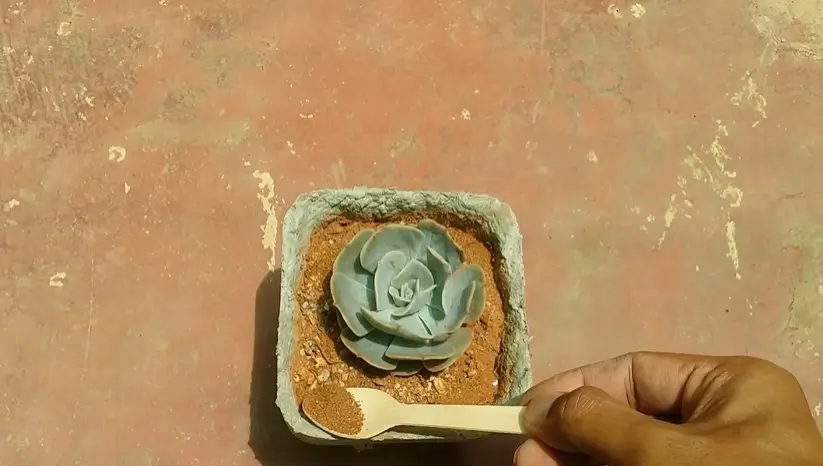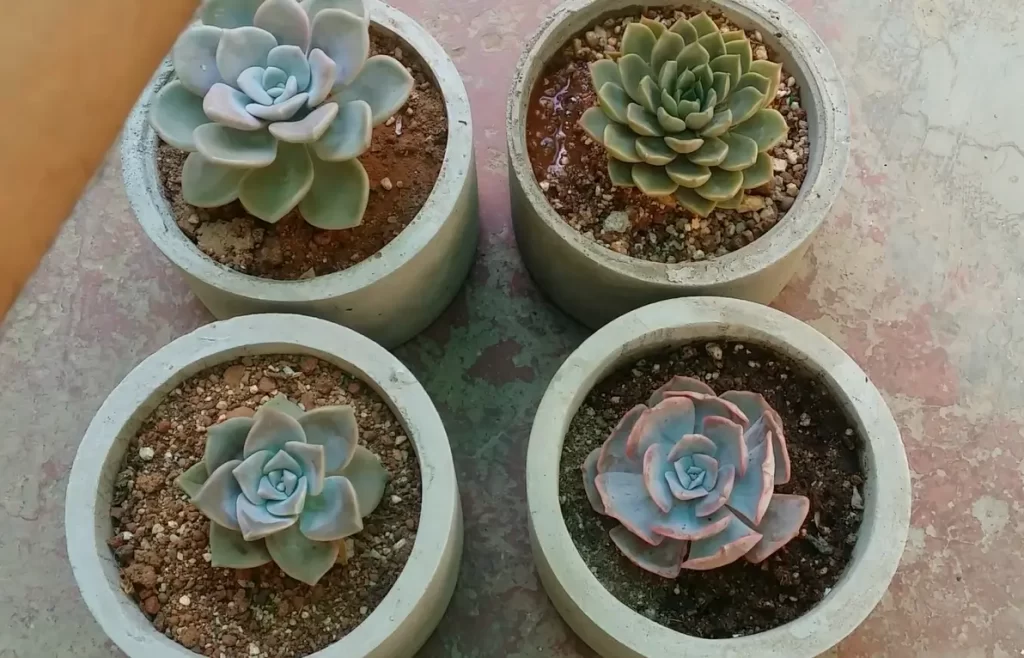Can I Use Succulent Fertilizer For Other Plants? + Tips
Gardening enthusiasts often wonder if they can use succulent fertilizers for other plants in their collection. Succulents are popular among plant lovers due to their low maintenance and drought-resistant qualities.
Specialized fertilizers designed specifically for succulents are common to enhance their growth and appearance. However, the question remains – Can I use succulent fertilizer for other plants?
Yes, you can use succulent fertilizer for other plants. It will help to provide them with the necessary nutrients to promote healthy growth and development.
In this article, we will explore whether succulent fertilizers can be used for other plants. So, stay tuned by reading the entire content.
What is Succulent Fertilizer?
Succulent fertilizer is a plant nutrient solution or formula specifically designed to provide essential nutrients to succulent plants. These plants require a balanced fertilizer with more potassium and phosphorous than nitrogen.

Succulent fertilizers come in different ratios of nitrogen, phosphorous, and potassium (NPK), usually indicated on the label. They are applied to the soil every few months, depending on the type of fertilizer and the plant’s needs. Organic fertilizers, such as compost, are also beneficial for succulents.
Different Types of Succulent Fertilizers
With so many different plant fertilizers available, choosing the right one for your succulent garden can be challenging. Here are some common types of succulent fertilizers and their benefits.
Liquid Fertilizer
Liquid fertilizers are easy to use and quickly absorbed by succulent plants. They come in a concentrated form and can be diluted with water according to the instructions on the packaging. Liquid fertilizers provide essential nutrients such as nitrogen, phosphorus, and potassium for succulent growth and development.
Slow-Release Fertilizer
Slow-release fertilizers are designed to release nutrients over a longer period. They come in granular form and can be sprinkled around the base of succulent plants. Slow-release fertilizers are ideal for succulent plants that require low to moderate levels of nutrients.
Organic Fertilizer
Organic fertilizers are made from natural sources such as animal manure, compost, and bone meal. They are rich in nutrients and promote soil health. Organic fertilizers are a great option for those who want to grow succulent plants in an eco-friendly way. They provide a slow release of nutrients and help to maintain a healthy soil structure. However, you can also grow succulent plants in coconut fiber, if you want.
Synthetic Fertilizer
Synthetic fertilizers are chemical-based and give succulent plants a quick burst of nutrients. They come in granular or liquid form and are easy to apply. Synthetic fertilizers are ideal for succulent plants that require high levels of nutrients. However, they can harm the environment if overused.
Foliar Fertilizer
Foliar fertilizers are sprayed directly onto the leaves of succulent plants. They are absorbed quickly and provide nutrients to the plant through its leaves. Foliar fertilizers are ideal for succulent plants with poor soil quality or difficulty absorbing nutrients through their roots.
Can I Use Succulent Fertilizer For Other Plants?
Yes, you can use succulent fertilizer for other plants, but you’ll need to consider the nutrient ratios and the specific nutrient requirements of the plants you are fertilizing. Succulent fertilizer typically has higher levels of potassium and lower levels of nitrogen compared to other fertilizers.
While these ratios are ideal for succulent plants, they may not be suitable for other plants requiring a different balance of nutrients.
It is recommended to choose a balanced fertilizer that contains essential nutrients for all plants or use organic fertilizers like compost that provide a range of nutrients and organic matter to the soil. Always follow the label instructions and your plants’ recommended watering and fertilization schedule.
Alternatives to Succulent Fertilizer for Other Plants
While succulent fertilizer is specifically designed to meet the needs of succulent plants, it may not be the best option for other plants. Here are some alternative fertilizers for other plants:
All-Purpose Fertilizer
All-purpose fertilizer is suitable for most types of plants, including vegetables, herbs, flowers, and shrubs. It contains a balanced nitrogen, phosphorus, and potassium ratio and trace elements such as iron, calcium, and magnesium. All-purpose fertilizers are available in liquid, granular, or powdered form and can be applied through watering or top-dressing.
Organic Fertilizer
Organic fertilizers are made from natural materials such as animal manure, compost, bone meal, and fish emulsion. They are a great alternative to chemical fertilizers as they improve soil health and fertility, support beneficial microbes and earthworms, and reduce environmental pollution. Organic fertilizers also provide a slow-release of nutrients, making them ideal for plants that require consistent feeding over an extended period.
Slow-Release Fertilizer
Slow-release fertilizers are designed to release nutrients gradually over time, providing a consistent plant supply. They are available in granular or pellet form and can last for several months, depending on the type of fertilizer and soil conditions. Slow-release fertilizers are ideal for container plants, as they require less frequent application and are less likely to cause fertilizer burn or leaching.
Bone Meal Fertilizer
Bone meal fertilizer is a natural source of phosphorus and calcium, two essential nutrients for plant growth and development. It is made from ground-up animal bones and can be applied to the soil or used as a foliar spray. Bone meal fertilizer is suitable for plants that require strong root growth, such as bulbs, tubers, and root crops.
How to Choose the Right Fertilizer for Your Plants
Choosing the right fertilizer is important to ensure the healthy growth of your plants. However, with so many different fertilizers available, it can be overwhelming to know which one is right for your plants. Here are some factors to consider when selecting the right fertilizer:

Nutrient Requirements
Different plants have different nutrient requirements, so choosing a fertilizer that meets those needs is important. Nitrogen, phosphorus, and potassium are the three primary macronutrients plants need to grow, but some micronutrients can be important for specific plants. Research the specific nutrient requirements of your plants and choose a fertilizer that provides the appropriate balance of nutrients.
Fertilizer Form
Fertilizers come in various forms, including granular, liquid, and slow-release. Granular fertilizers are typically applied to the soil surface and are slowly broken down by moisture and microorganisms in the soil. Liquid fertilizers are mixed with water and applied directly to the plant roots or foliage.
Slow-release fertilizers provide a steady supply of nutrients over an extended period. Consider the pros and cons of each fertilizer form and choose the one that best suits your needs.
Soil Type
The type of soil in your garden can also affect your fertilizer choice. Sandy soil, for example, drains quickly and may require more frequent fertilizer applications than clay soil, which holds onto nutrients better. Conduct a soil test to determine the pH level of your soil and whether any amendments are needed before fertilizing.
Plant Growth Stage
The growth stage of your plants can also affect the type of fertilizer you choose. Young plants may benefit from a fertilizer with a higher concentration of nitrogen to promote leaf growth.
In contrast, mature plants may require more phosphorus and potassium to encourage flowering and fruiting. Research the growth stages of your plants and choose a fertilizer that provides the appropriate nutrients for each stage.
Environmental Impact
Consider the environmental impact of the fertilizer you choose. Some fertilizers can harm the environment, particularly if they contain high levels of nitrogen and phosphorus that can contribute to water pollution. Look for fertilizers that are labeled as environmentally friendly or organic.
Final Words
Based on the discussion above, you may get the answer to the question: Can I use succulent fertilizer for other plants? It is possible to use succulent fertilizer for other plants. However, the fertilizer should be chosen with the individual plant in mind.
Plants have different nutritional needs, and succulents have unique requirements that may not be suitable for other plants. Additionally, you should remember the amount of fertilizer used and the frequency of application.
